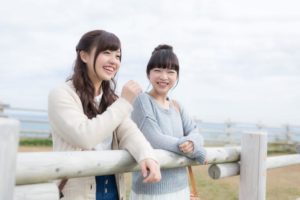“obaa san” vs. “obaa chan”:Which is Used To Your Grandma?
What is the difference between “おばあさん(obaa san) and おばあちゃん(obaa chan)”? Which is used as the meaning of “your grandma”? After reading this, you would be answering this question. Let me introduce what their subtle differences are and how you correctly use them such as native speakers today!
おばあさん (obaa san)
An old lady / 老奶奶 / 할머니 / Bà
“おばあさん(obaa san)” means “An old lady” and which has been used as the meaning of “a lady who exists for many years”. The basic ways to use it are that “おばあさんは___。(An old lady ___.)”, etc For instance, “おばあさんは車を買う。(An old lady buys a car.)”, “あのおばあさんは本を読むのが好きだ。(That old lady likes to read books.)”, このおばあさんは90歳だ。(This old lady is 90 years old.)”, etc. The tips for using it are that “おばあさん” is used as the meaning of “AN OLD LADY WHO IS NOT YOUR GRANDMOTHER”, unlike “おばあちゃん”. Everyone could use “おばあさん” as casual, polite and formal such as “このおばあさんは90歳だよ。(This old lady is 90 years old.)” as casual, and “このおばあさんは90歳です。(This old lady is 90 years old.)” as polite and formal.
\ Learn Japanese with a personal native teacher!/
Sample
あのおばさんは有名だよ。 (That lady is famous.) (那位阿姨很有名喔。) (그 아줌마는 유명해요) (Dì ấy là người nổi tiếng đấy.)


病院にたくさんのおばさんがいました。 (There were ladies in the hospital.) (医院里有很多阿姨。) (병원에 아줌마들이 많이 있었습니다.) (Có rất nhiều phụ nữ lớn tuổi ở bệnh viện.)


このおばさんは電車でスリにあいました。 (This lady was pickpocketed on the train.) (这位阿姨坐电车的时候遇到小偷了。) (이 아줌마는 전철에서 소매치기당했습니다.) (Người phụ nữ này đã bị móc túi trên tàu điện.)


隣に座ってるおばさんたちがうるさい・・・ (The ladies sitting next to me are noisy…) (坐在旁边的阿姨们很吵……) (옆자리의 아줌마들이 시끄러워 …) (Mấy người phụ nữ đang ngồi cạnh tôi thật là ồn ào…)
おばあちゃん (obaa chan)
Grandma, Granny / 奶奶 / 할머니 / Bà tôi
“おばあちゃん(obaa chan)” means “Grandma or Granny” and which has been used as the meaning of “one’s grandmother used informally”. The basic ways to use it are that “私のおばあちゃんは___。(My grandma/granny ___.)”, etc. For instance, “私のおばあちゃんは車を買う。(My grandma/granny buys a car.)”, “私のおばあちゃんは本を読むのが好きだ。(My grandma/granny like to read books.)”, “私のおばあちゃんはこの人です。(My grandma/granny is this person.)”, etc. The tips for using it are that “おばあちゃん” is used as “AN OLD LADY WHO IS YOUR GRANDMOTHER”, unlike “おばあさん”. Everyone could use “おばあちゃん” as casual, polite such as “おばちゃんは90歳だよ。(My grandma is 90 years old.)” as casual, and “おばちゃんは90歳です。(My grandma is 90 years old.)” as polite and formal.
Sample


おばあちゃんの誕生日プレゼントを買ったよ。 (I bought a birthday present for my granpa.) (我买了送给奶奶的生日礼物。) (할머니 생일 선물을 샀어.) (Tôi đã mua quà để mừng sinh nhật của bà tôi đấy.)


来年、おばあちゃんと旅行に行きます。 (I’m going to travel with my grandma next year.) (我明年会和奶奶一起去旅行。) (내년에 할머니와 여행 갈겁니다.) (Năm tới, tôi sẽ đi du lịch với bà tôi.)


先週、おばあちゃんと買い物に行きました。 (I went shopping with my grandma last week.) (上周我和奶奶一起去购物了。) (지난주 할머니와 쇼핑했었어요..) (Tuần trước tôi đã đi mua sắm với bà của tôi.)


おばあちゃんは70歳だよ。 (My granny is 70 years old.) (奶奶已经70岁了。) (할머니는 70 세예요.) (Bà tôi đã 70 tuổi rồi đấy.)
\ Learn more! /









Comments